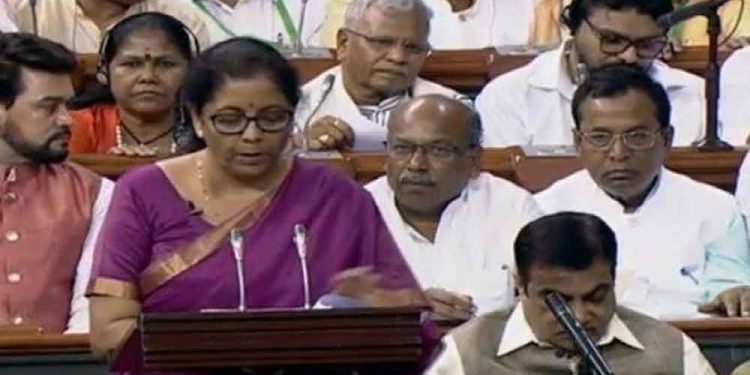New Delhi: Finance Minister Nirmala Sitharaman introduced Monday the Taxation Laws (Amendment) Bill, 2019, in the Lok Sabha to replace the Ordinance that was used to slash corporate tax rate to stimulate growth rate in a slowing economy.
The Taxation Laws (Amendment) Bill, 2019 will replace the Taxation Laws (Amendment) Ordinance, 2019, promulgated September 20, 2019, to cut the base corporate tax rate to 22 per cent from 30 per cent.
Sitharaman introduced the Bill just before the proceedings in the Lok Sabha were adjourned for the day following opposition uproar over political developments in Maharashtra.
Also, the International Financial Services Centres (IFSCs) Authority Bill, 2019, that provides for creation of a unified financial regulator for IFSCs was introduced.
Sitharaman had September 20 announced the lowering of the base corporate tax rate to 22 per cent from 30 per cent for companies that do not seek exemptions, and reduced the rate for some new manufacturing companies to 15 per cent from 25 per cent. Including surcharges and cesses (levies to raise funds for specific purposes), the effective corporate tax rate will drop by nearly 10 percentage points to 25.2 per cent.
The corporate tax cut follows other measures by the government to prop up slowing GDP growth adopted since the May general elections. Among these are efforts to reduce red tape and boost foreign direct investment (FDI), and plans to consolidate the state-owned banks.
Besides reduction in corporate tax rates for existing and new domestic companies, the Ordinance also implemented the withdrawal of higher surcharge for non-corporates on certain capital market transactions announced earlier August 24, 2019, and also provides relief from buyback tax for listed companies in respect of buybacks which were publicly announced prior to the Budget announcement July 5, 2019.
The finance minister also produced the International Financial Services Centres Authority Bill, 2019. The Bill provides for the establishment of the International Financial Services Centres Authority.
The Authority will consist of nine members, appointed by the central government. Members of the Authority will include four members to be nominated from the Reserve Bank of India (RBI), the Securities Exchange Board of India (Sebi), the Insurance Regulatory and Development Authority of India (Irdai), and the Pension Fund Regulatory and Development Authority besides chairperson.
PTI






































